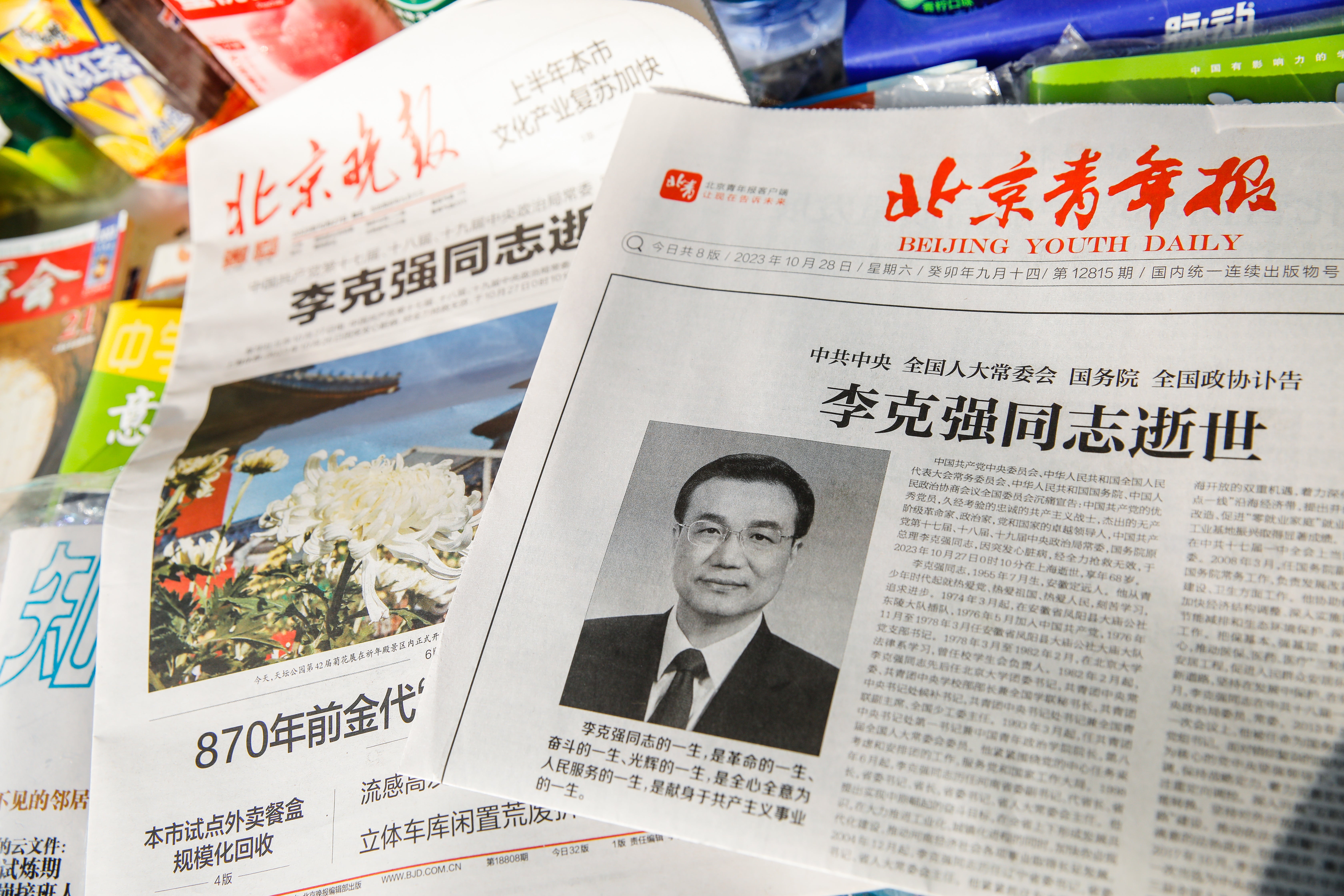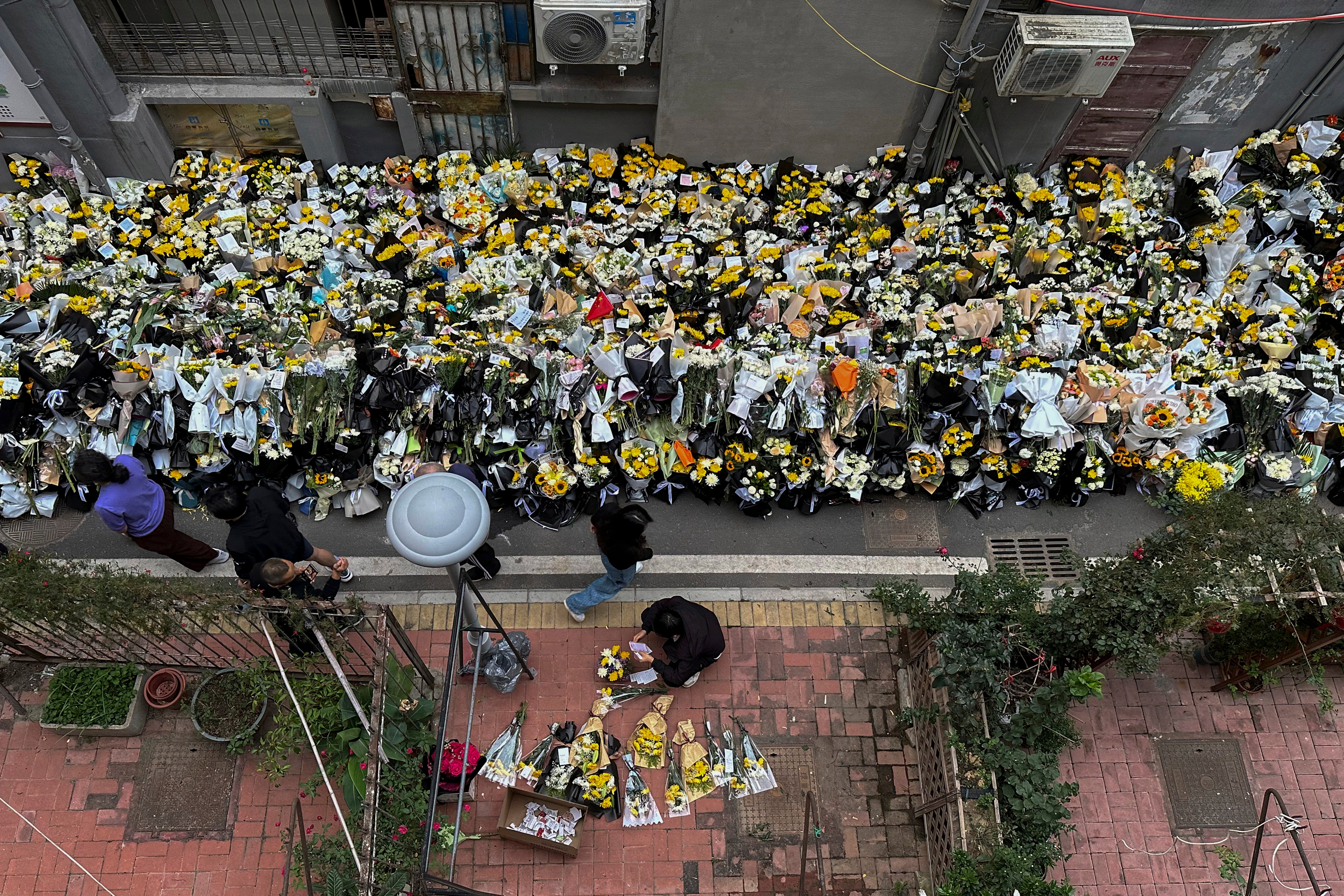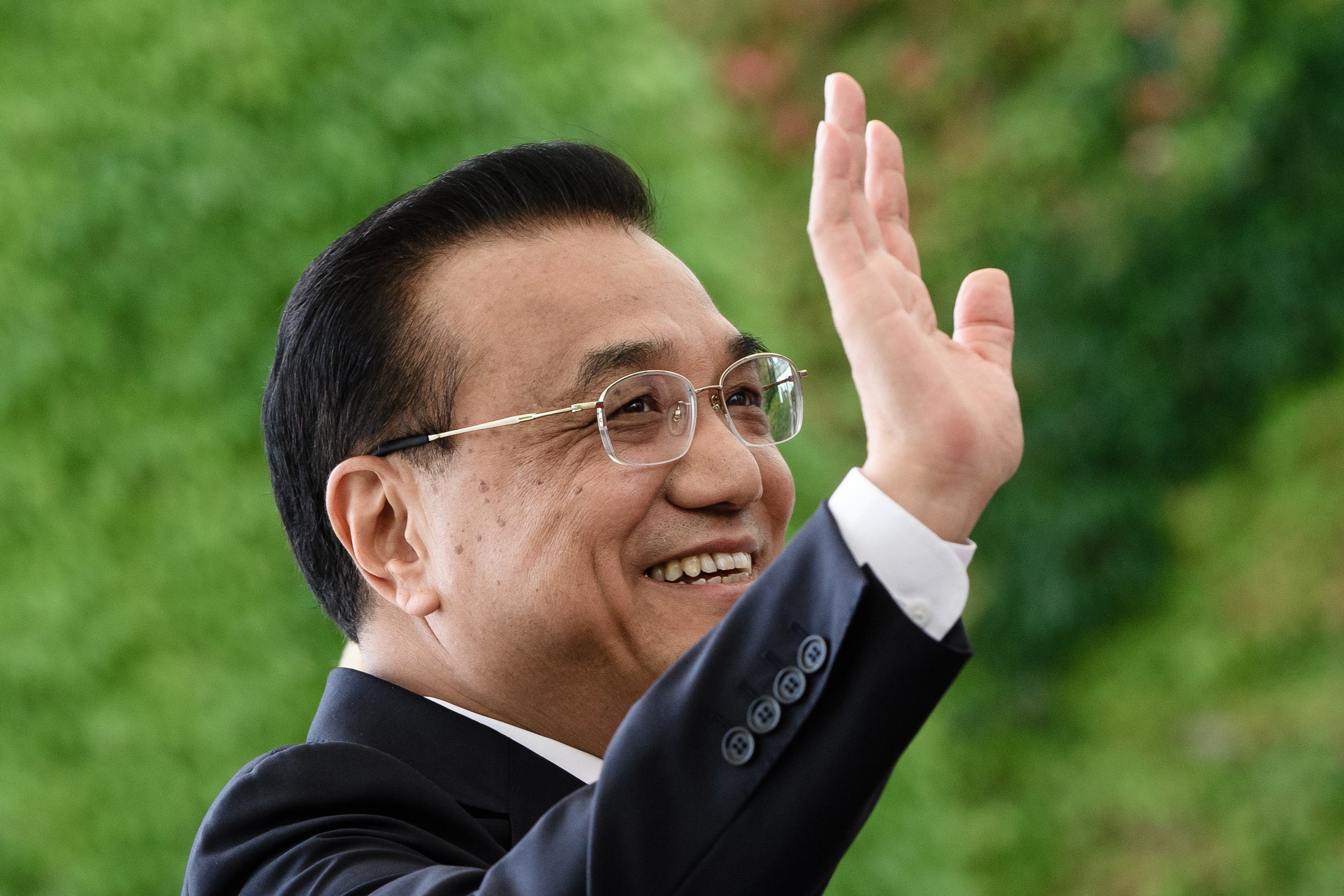How Li Keqiang’s sudden death took Chinese Communist Party by surprise
China’s most senior leaders are usually expected to live long lives – but Li defied this common expectation

Your support helps us to tell the story
From reproductive rights to climate change to Big Tech, The Independent is on the ground when the story is developing. Whether it's investigating the financials of Elon Musk's pro-Trump PAC or producing our latest documentary, 'The A Word', which shines a light on the American women fighting for reproductive rights, we know how important it is to parse out the facts from the messaging.
At such a critical moment in US history, we need reporters on the ground. Your donation allows us to keep sending journalists to speak to both sides of the story.
The Independent is trusted by Americans across the entire political spectrum. And unlike many other quality news outlets, we choose not to lock Americans out of our reporting and analysis with paywalls. We believe quality journalism should be available to everyone, paid for by those who can afford it.
Your support makes all the difference.Former Chinese premier Li Keqiang’s sudden death appears to have caught the Communist Party by “total surprise”, analysts say, with an official obituary for the popular leader not emerging until hours after the news broke.
Li served for a decade as the second most powerful person in China behind Xi Jinping before he was replaced as premier in March this year, and was just 68 when he suffered a heart attack and died on Friday.
China’s most senior leaders have typically lived long lives – some past 100 – and Li’s death so soon after leaving office seems to have surprised the country’s leadership.
It had party officials scrambling to issue a last-minute obituary and curb potential conspiracies, and to control information and an outpouring of grief online.
Li’s sudden death also occurred at a politically sensitive time – defence minister Li Shangfu was unceremoniously sacked just days earlier.
The Communist Party-run news agency Xinhua first announced Li’s death with a short message at 8.16am local time. The brief announcement was that Li had “passed away on Friday in Shanghai” following a “sudden heart attack”.
A longer official eulogy for the economist came only after 10 hours. The belated tribute described Li as an “outstanding proletarian revolutionist” and “loyal communist soldier”.
Analysts said Chinese state media would normally be well prepared for the death of a senior leader. “I think Li’s death was a total surprise to Beijing’s top leaders, as the state media obviously did not prepare his full obituary, unlike what they will do in the case of party leaders who are known to be very ill,” Chen Daoyin, a former professor at Shanghai University of Political Science and Law, told the South China Morning Post newspaper.

He said the first brief message about Li’s passing came quickly so the party could “curb all the conspiracy theories that might arise”.
Li’s sudden passing also came as a surprise to the Chinese public. The country’s senior leaders are known for leading healthy lifestyles and receiving exceptional medical care from the state.
His unexpected death is a significant event for China, not only due to its suddenness but also for what he represented – an alternative vision for governing the country that diverged from his boss Mr Xi’s.
The bureaucrat was sidelined by the Chinese president in October last year. Mr Xi has tightened his own grip on power over the course of recent years, steering the world’s second-largest economy in a more statist direction.

Li’s death also prompted authorities to crack down on VPN access as tributes for a man once seen as a potential rival to Mr Xi poured in online, according to BBC News.
People posted videos of Li standing in ankle-deep mud, visiting victims of a flood and shared a speech of him promising China would remain open to the outside world.
A widely circulated social media post noted that many Chinese people identified with Li, as they saw themselves as people “who have struggled over the past decade but have gradually lost ground”.
People also shared quotes attributed to Li, such as “power must not be arbitrary” and “it’s harder to touch interests than souls”.
China’s Weibo microblogging platform turned its “like” button into a chrysanthemum flower, a symbol of mourning, on its mobile app.
Some online debate revolved around how China’s current landscape may have differed had Li assumed the role of China’s president instead of Mr Xi.
Li had championed a more open-market economy and had promoted supply-side reforms under the moniker “Likonomics”. These reforms were not fully put into action.
He eventually yielded to Mr Xi’s inclination for increased state control, leading to a decline in his former sphere of influence as the president appointed his loyal supporters to influential roles.
As the Covid pandemic swept China, Li indirectly voiced concerns about the economic and societal toll caused by Mr Xi’s zero-Covid strategy on ordinary Chinese citizens.
While the zero-Covid policy remained in effect, Li was seen without a mask during a visit to a university in Yunnan province last year. Students and officials who surrounded him were also not wearing masks.
Join our commenting forum
Join thought-provoking conversations, follow other Independent readers and see their replies
Comments